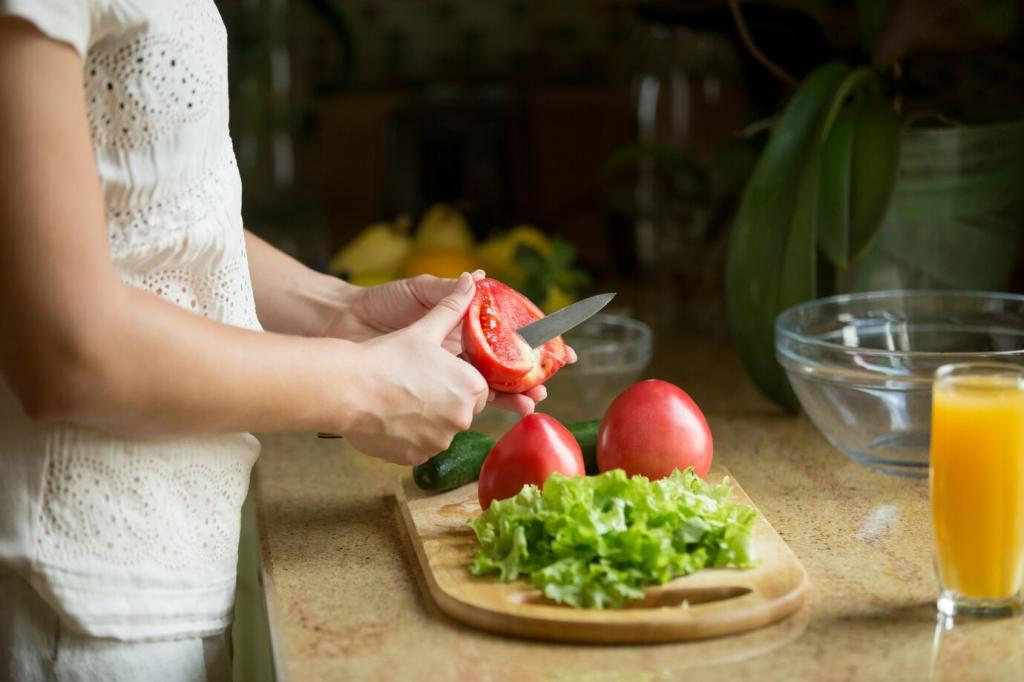Sustainable Kitchen Products and Alternatives
Embracing sustainable kitchen products and alternatives is an impactful way to support a healthier planet while creating an eco-friendly home environment. The kitchen, as the heart of the household, is a pivotal area to reduce waste, save resources, and make mindful choices about the items and materials we use daily. By carefully considering which products enter your kitchen, you can significantly reduce your environmental footprint, promote ethical sourcing, and contribute to a more sustainable future. This guide explores how you can transition to eco-conscious habits and select alternatives that support your values without sacrificing quality or functionality.
Bamboo and Wood Products
Bamboo and responsibly sourced wood are highly renewable resources making a significant difference in kitchen sustainability. Unlike traditional plastics and non-biodegradable materials, bamboo grows quickly without the need for pesticides or fertilizers, and wood from certified forests supports responsible forestry practices. When used for products like cutting boards, utensils, and serving ware, these materials not only offer long-lasting durability but can be composted at the end of their lifespan, returning nutrients to the earth. Adding bamboo or wooden items to your kitchen provides a natural aesthetic and proves that style, practicality, and sustainability can coexist seamlessly.
Recycled Materials in Cookware
Cookware crafted from recycled metals and glass represents a conscious shift from resource-intensive manufacturing. Recycled aluminum, for example, requires far less energy to process than extracting and refining virgin materials. Glass containers made from recycled sources not only cut down on landfill waste but also lower the carbon footprint associated with production. Opting for products featuring high percentages of post-consumer recycled content demonstrates a commitment to closing the loop of resource use, all while maintaining the strength, safety, and heat resistance required for everyday cooking and storage needs.
Compostable and Biodegradable Options
For items that cannot be reused or recycled indefinitely, compostable and biodegradable alternatives present an effective solution to kitchen waste. Compostable plates, cutlery, and food storage papers break down efficiently in home compost systems or industrial facilities, leaving behind no toxic residues. Such products are often made from plant-based materials like cornstarch or sugarcane, rapidly returned to the environment as valuable compost. Transitioning to these options for disposables supports a move away from environmentally persistent plastics, helping kitchens reduce landfill contributions and supporting the health of local ecosystems.
Previous slide
Next slide

Everyday Swaps for a Greener Kitchen
Swapping out single-use plastic wraps for reusable counterparts is one of the simplest and most effective changes a household can make. Reusable food wraps, often made from cotton infused with beeswax or vegan-friendly waxes, mold around containers and foods just as plastic wrap does, yet can be washed and used again for months. This not only keeps hundreds of plastic wraps out of landfills each year but also reduces demand for petroleum-based plastics. Choosing reusable wraps aligns with a growing movement towards zero-waste kitchens, setting an example for more mindful consumption.
Reducing Kitchen Waste: A Sustainable Path
Effective and sustainable food storage is key to reducing spoilage and waste. Investing in glass containers, stainless steel tins, or silicone storage bags keeps food fresher for longer without relying on disposable plastics. Thoughtful organization—such as clearly labeling leftovers, rotating pantry stock, and prioritizing items that need to be used soon—further minimizes the likelihood of forgotten foods being thrown away. By combining practical storage solutions with greener materials, your kitchen can drastically cut the amount of edible food sent to landfill while making meal planning more efficient.
Home composting offers an impactful way to handle food waste, transforming scraps into nutrient-rich soil for gardens or community spaces. Even if you lack a backyard, countertop composting systems or city programs make this practice accessible. Instead of sending peels, coffee grounds, and eggshells to a landfill where they release methane, composting allows these materials to break down naturally, closing the loop on food resources. In addition to benefiting the environment, composting connects kitchen activities to the earth’s cycles, fostering a sense of environmental responsibility.
Planning meals and portions carefully plays a substantial role in minimizing waste. Shopping with a list, taking stock of existing supplies, and preparing just what is needed prevent overbuying and food spoilage. Cooking with leftovers in mind encourages creativity and resourcefulness, turning surplus ingredients into new dishes rather than discards. Through intentional meal planning and portion control, kitchens become more efficient, respectful of resources, and aligned with sustainable living principles.

